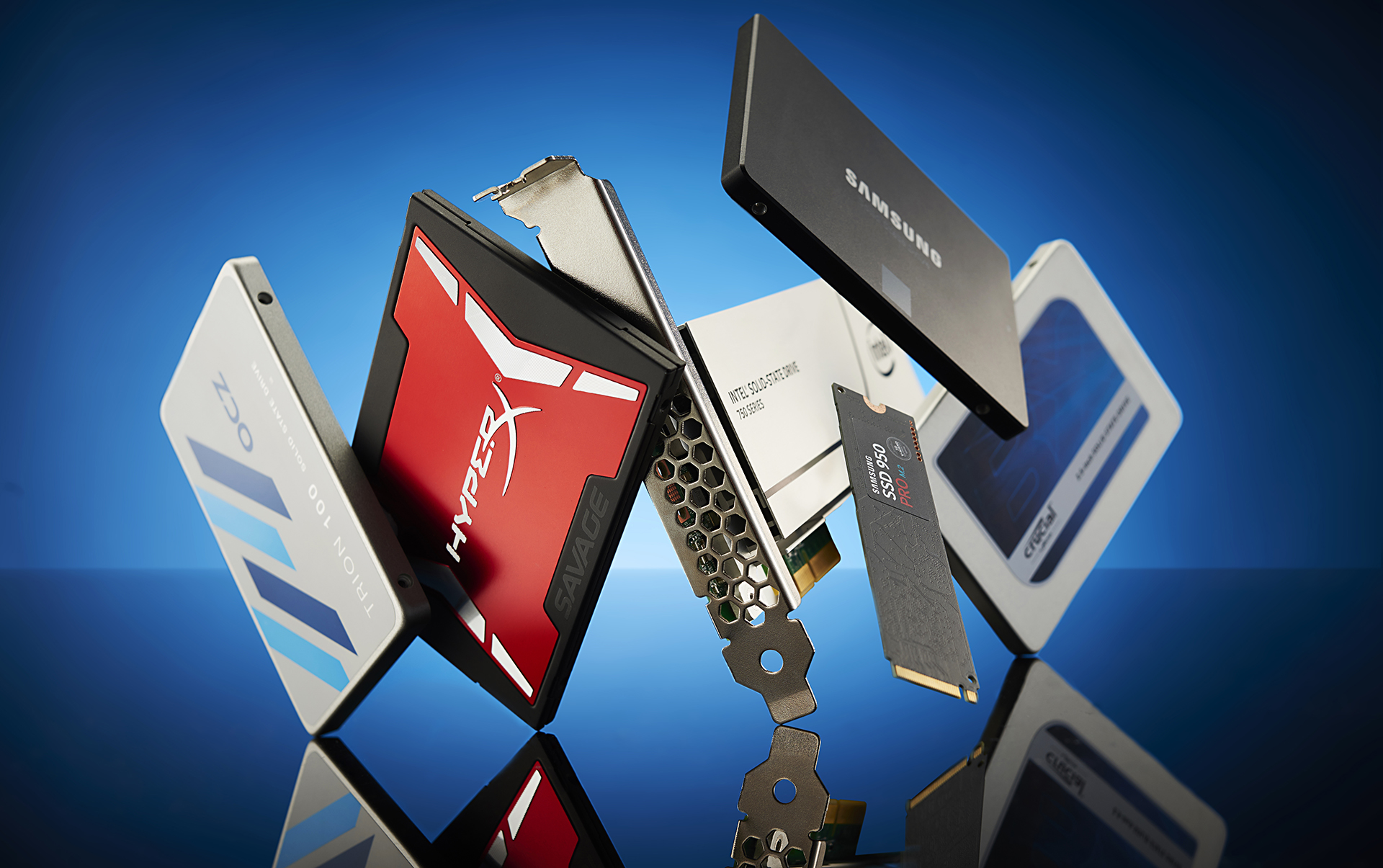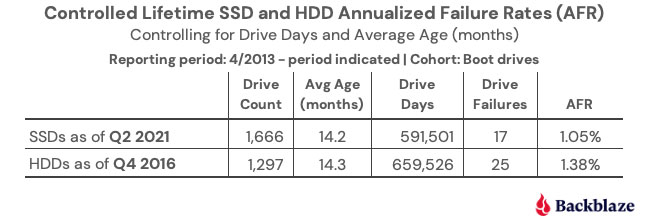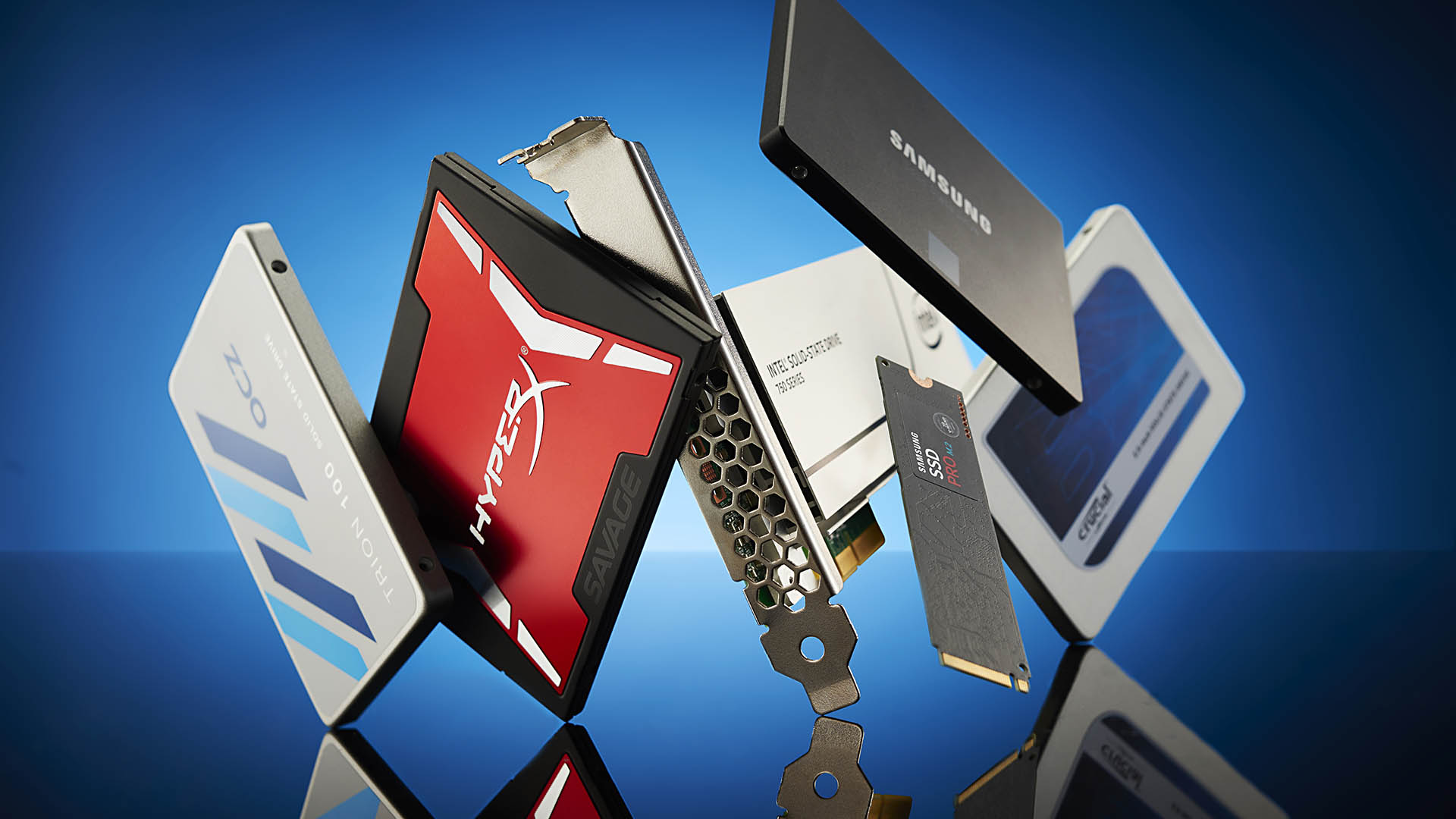Storage study finds SSDs might not be much more reliable than HDDs after all
Backblaze compares the failure rates of SSDs and HDDs in a cloud backup environment.

Conventional wisdom says solid state drives are inherently less prone to failures than mechanical hard disk drives because they lack any moving parts. But as it turns out, having spinning platters, actuator arms, and a motor, as found in all HDDs, may not be a big disadvantage as it relates to reliability, a new report by Backblaze suggests.
Backblaze is a subscription-based cloud storage and backup service that has been in operation for over a decade. As such, it is in a unique position to offer real-world data on drive failure rates, and it often makes its stats on drive failures available for public consumption.
The company had been exclusively using HDDs up until mid-2018, at which point it began employing SSDs as boot drives on a trial basis. The experiment went well, so it ended up switching to only using SSDs as boot drives in new storage deployments, and also when replacing failed HDDs.
"In our case, describing these drives as boot drives is a misnomer as boot drives are also used to store log files for system access, diagnostics, and more. In other words, these boot drives are regularly reading, writing, and deleting files in addition to their named function of booting a server at startup," Backblaze explains.
This allowed Backblaze to compare the failure rates of 1,666 SSDs to 1,607 HDDs, and the initial data favors the latter—there have only been 17 SSD failure since deploying the speedy storage medium, versus 619 HDD failures.
At first glance, it would appear SSDs are overwhelmingly more reliable than HDDs. However, Backblaze points out that the average age of the SSDs drive is just 14.2 months, with the oldest of bunch having been employed for 33 months. Meanwhile, the average age of the HDDs is 52.4 months, with the youngest being 27 months.
"To create a more accurate comparison, we can attempt to control for the average age and drive days in our analysis. To do this, we can take the HDD cohort back in time in our records to see where the average age and drive days are similar to those of the SSDs from Q2 2021," Backblaze says.
Keep up to date with the most important stories and the best deals, as picked by the PC Gamer team.
Here's what it looks like when controlling for drive age:

The bulk of HDD failures came after an extended period of time. When turning back the clock to look at drive failures after around 14 months, SSDs still fail less often, but not by very much—they have an annualized failure rate of 1.05% versus 1.38% for HDDs.
"Where does that leave us in choosing between buying a SSD or a HDD? Given what we know to date, using the failure rate as a factor in your decision is questionable," Backblaze says. "Once we controlled for age and drive days, the two drive types were similar and the difference was certainly not enough by itself to justify the extra cost of purchasing a SSD versus a HDD."

Best SSD for gaming: the best solid state drives around
Best PCIe 4.0 SSD for gaming: the next gen has landed
The best NVMe SSD: this slivers of SSD goodness
Best external hard drives: expand your horizons
Best external SSDs: plug in upgrades for gaming laptops and consoles
That doesn't mean you should go back to using HDDs. Backblaze highlights several other deciding factors, such as speed, electricity, and form factor requirements (or preferences).
It's also worth noting that the data is limited in scope. While early failure rates don't heavily favor SSDs over HDDs, it is entirely possible that over time, SSDs will prove more reliable. Only time will tell. In addition, not all drives are created equal. While still interesting, the data is just too narrow.
That said, none of the SSD failures were the result of write endurance or based on SMART monitoring stats. Backblaze says it is only at the beginning of using SMART stats to proactively fail an SSD, meaning it yanks an SSD if it believes a failure is imminent. These were all reactive failures, where the drives simply stopped working.
Paul has been playing PC games and raking his knuckles on computer hardware since the Commodore 64. He does not have any tattoos, but thinks it would be cool to get one that reads LOAD"*",8,1. In his off time, he rides motorcycles and wrestles alligators (only one of those is true).


